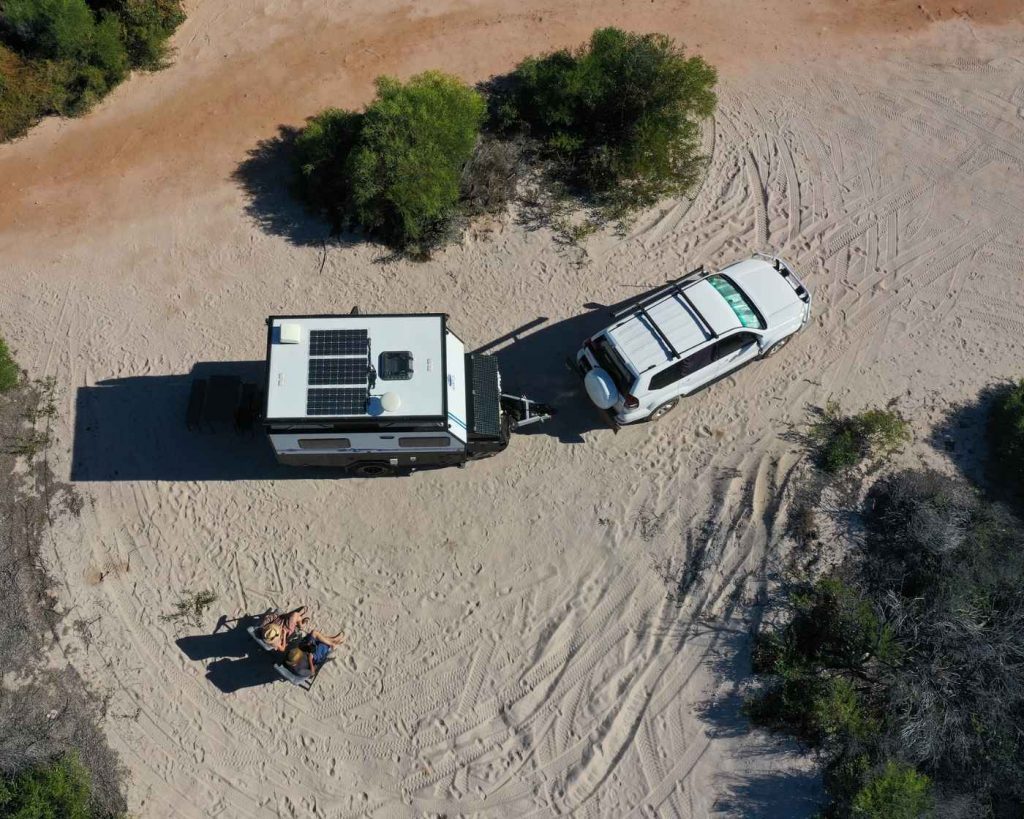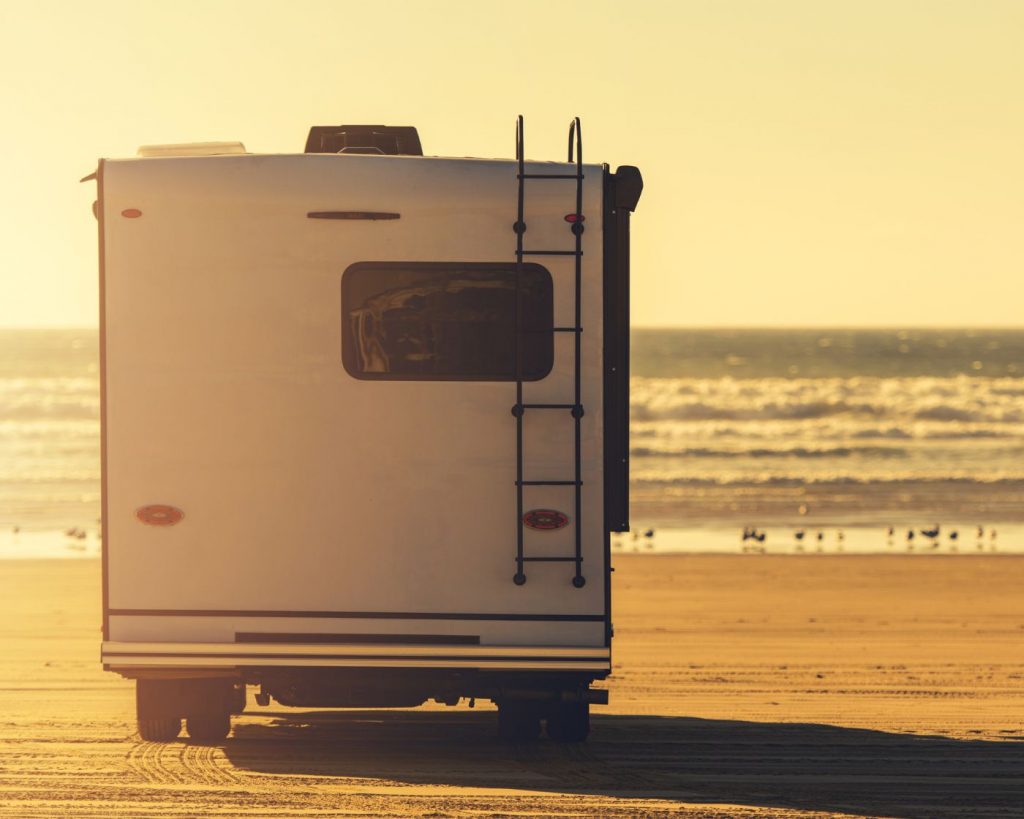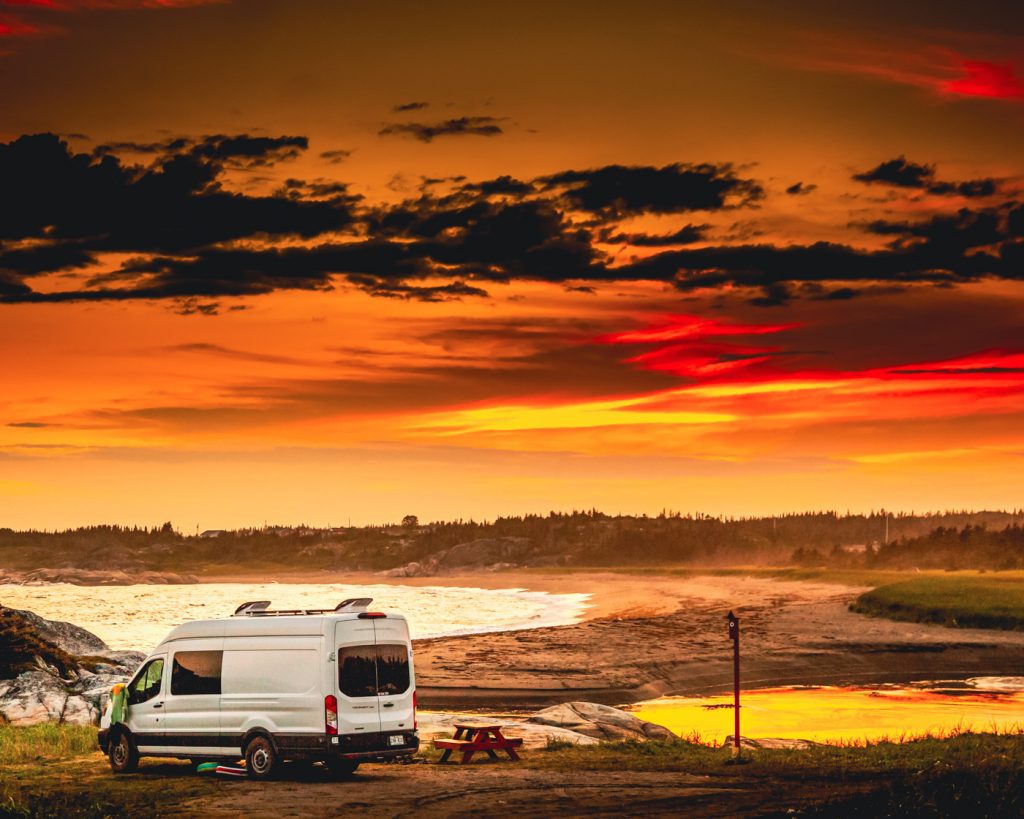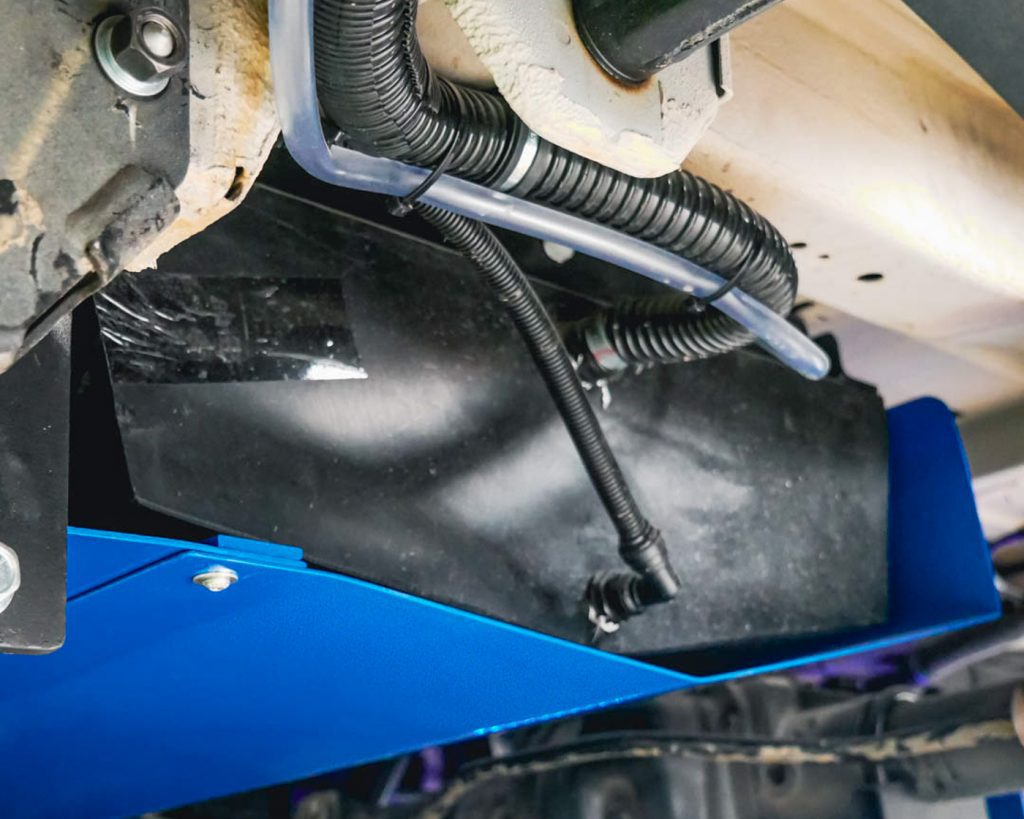Retirement is not just a time to relax but also an opportunity to embrace new adventures. What better way to do that than by hitting the open road in a motorhome or caravan? Living on the road offers unparalleled freedom and flexibility, allowing you to explore breathtaking landscapes and vibrant communities at your own pace. Investing in the right motorhome ensures this journey is comfortable, empowering, and exciting.
Let’s explore how to choose the ideal vehicle for your retirement adventure.
Understanding Your Needs
Before exploring the exciting world of motorhomes, it’s essential to pause and consider your individual travel preferences. This decision is not just about a vehicle; it’s about your lifestyle and comfort.
Consider what type of experiences you envision: Are you dreaming of full-time road living, where your motorhome becomes your primary residence, allowing you to explore new destinations at your leisure? Or are you looking for part-time escapes where the motorhome serves as a weekend getaway vehicle, allowing you to unwind and recharge?
Understanding your preferences will help you focus on the best options for your retirement, making your choice more personalised and tailored to your needs. Additionally, consider the company you’ll have during these adventures.
Will you be travelling solo, enjoying the freedom and solitude that comes with it, or will this be a shared experience with a partner or family members? When travelling with others, you must consider everyone’s needs and preferences. This trip isn’t just about your comfort; it’s also about the people you care about. Recognising these lifestyle choices will help you make a more inclusive and considerate decision for everyone involved.
When choosing a motorhome, it’s essential to prioritise space, comfort, and amenities. Living on the road means living more intentionally and sacrificing some of your favourite conventional home comforts in favour of adventure. Before going ahead with buying a home on the road, imagine your ideal living situation:
Do you want a spacious living area to entertain friends or family, relax after a long day on the road, or have adventures? Or do you prefer to sit outside and set up your cooking and dining there?
Is a fully equipped kitchen necessary for preparing meals during your travels, or are you comfortable with more straightforward cooking options, such as an outdoor BBQ?
Perhaps you envision a cosy sleeping nook that feels like a sanctuary at the end of your adventures, or maybe you need a spacious double bed with ample storage and bedside tables.
Identifying specific needs upfront can streamline the decision-making process. It ensures you choose a motorhome that aligns with your retirement dreams and lifestyle. List your must-haves versus nice-to-haves, and consider how each feature will enhance your travel experience. This thoughtful approach will help you find the perfect motorhome that meets your expectations, allowing you to enjoy the open road fully.

Types of Motorhomes and Caravans
The market offers various vehicles tailored to different travel styles and preferences. Here’s a comprehensive look at multiple types of motorhomes, caravans, campers, and buses, along with their descriptions, pros, and cons.
Campervans
Description: Compact and easy to drive, campervans are ideal for solo travellers or couples who prioritise mobility. They often have basic amenities like a bed, kitchen, and storage.
Pros:
- Easy to park and maneuver
- Flexible for spontaneous trips
- Generally more affordable
Cons:
- Limited space for storage and comfort
- Less suitable for larger groups
Class A Motorhomes
Description: These are large, bus-like vehicles with spacious interiors loaded with amenities, such as full kitchens, bathrooms, and entertainment systems.
Pros:
- Maximum comfort and space
- Ideal for long-term travel
- High-end options available
Cons:
- Expensive to purchase and maintain
- Challenging to drive in tight spaces
Class B Motorhomes
Description: Often referred to as camper vans, these vehicles are smaller than Class A but still provide essential living amenities. They are perfect for couples or small families.
Pros:
- Compact and easy-to-drive
- Good fuel efficiency
- Versatile for various travel situations
Cons:
- Limited living space
- Not ideal for long-term living
Class C Motorhomes
Description: Recognisable by the over-cab sleeping area, Class C motorhomes are a great middle ground between Class A and B. They offer more space than camper vans without being as large as Class A.
Pros:
- More affordable than Class A
- Family-friendly with extra sleeping areas
- Easy to drive compared to Class A
Cons:
- It can still be difficult to park
- It may have less luxurious features than Class A
Caravans
Description: These attach to a tow vehicle, allowing you to detach your living space while exploring local areas. They come in various sizes and can include amenities from basic to luxurious.
Pros:
- Flexibility to explore without the hassle of moving the entire setup
- Often more affordable than motorhomes
- A variety of sizes and amenities are available
Cons:
- Requires a suitable tow vehicle
- It can be cumbersome to set up and take down
Off-Road Caravans
Description: Designed for adventure enthusiasts, off-road caravans are built to withstand challenging terrains. They offer robust construction and additional features for rough travel conditions.
Pros:
- Durable build suitable for remote areas
- Enhanced suspension and ground clearance
- Equipped for independent travel with solar panels and water tanks
Cons:
- Typically heavier, requiring a solid tow vehicle
- More expensive than standard caravans
- Limited to smaller living spaces due to rugged design
Teardrop Caravans
Description: Known for their compact, aerodynamic shape, teardrop caravans are lightweight and perfect for short trips or minimalist travel. They usually include a sleeping area and a basic kitchenette at the rear.
Pros:
- Easy to tow with smaller vehicles
- Minimal setup time
- Cost-effective option for short getaways
Cons:
- Minimal living space
- Basic amenities may not suit long trips
- Little storage capacity
Pop-Top Caravans
Description: These caravans feature a retractable roof, allowing for a lower profile during travel and increased headroom when parked. They’re great for dynamic travellers who value convenience and comfort.
Pros:
- Improved fuel efficiency due to lower travel height
- Quick and easy setup
- Good balance of space and compactness
Cons:
- Limited insulation due to retractable roof
- It can be less robust than full-height caravans
- Slightly less secure than fixed-roof options
Fifth-Wheel Caravans
Description: These large caravans are towed using a special hitch in the bed of a pickup truck, providing a stable ride and spacious living area. They often feature multiple slide-outs for added space.
Pros:
- Spacious and luxurious interiors
- Stable towing experience
- Ideal for long-term living
Cons:
- Requires a heavy-duty tow vehicle
- Challenging to maneuver in tighter spaces
- Higher purchase and maintenance costs
Each caravan type offers distinct advantages tailored to specific travel needs and preferences. Understanding these varieties will help you to choose a caravan that best fits your envisioned lifestyle and adventure plans.
Pop-up Campers
Description: These lightweight, collapsible trailers can be towed easily. They expand to provide sleeping space and basic amenities.
Pros:
- Affordable and easy to tow
- Compact for storage
- Great for camping trips
Cons:
- Limited amenities and comfort
- Requires manual setup
Motorhomes on Buses (Bus Conversions)
Description: These converted buses can be transformed into spacious living quarters, often customised with high-end finishes and features.
Pros:
- Unique and spacious living space
- Highly customisable to personal style
- Great for full-time living
Cons:
- Expensive to convert and maintain
- Requires a special license in some areas
Description: Van conversions involve transforming standard cargo or passenger vans into customised living spaces. These converted vans are popular among nomads and travellers seeking flexibility and simplicity.
Pros:
- Utterly customisable to personal taste and needs
- Stealthy and discreet for urban environments
- Versatile for both short and long trips
Cons:
- Limited space for living and storage
- Requires significant DIY effort or expense for professional conversion
- May lack some amenities found in larger RVs or motorhomes
Each type of motorhome or caravan has pros and cons, and understanding these options is crucial for making an informed decision that aligns with your travel aspirations. Whether you prioritise mobility, space, or flexibility, there’s a perfect vehicle out there waiting for your adventures!

Features to Consider for an Enhanced Travel Experience
Selecting the right features in a travel vehicle can significantly enhance your overall travel experience, providing a sense of feeling at home no matter where you are.
Ease of use is paramount; automatic transmissions and intuitive layouts make driving less stressful and more enjoyable. Accessibility features such as low steps and wide doorways are crucial for comfort, ensuring that getting in and out of the vehicle is hassle-free. Safety features like rearview cameras and stability control provide peace of mind while on the road, allowing you to focus on enjoying your journey. Having a self-contained bathroom is a significant advantage regarding interior convenience. Pros include travelling without stopping frequently for restroom breaks and enhancing comfort during long trips. However, there are some downsides to consider, such as the added weight and maintenance costs of a bathroom system.
When choosing a cooking option, weighing the pros and cons of gas versus electric stoves is essential. Gas stoves typically heat up more quickly and offer better control over cooking temperatures, making them a reliable choice in remote areas without electricity. In contrast, electric stoves are generally easier to clean and present a safer option with fewer fire hazards.
Air conditioning is another crucial feature to consider. While it can significantly enhance comfort while travelling in warm climates, it often requires a significant power source, which should be considered when planning your travels.
Choosing low-tech and high-tech motorhomes or caravans can significantly impact your travel experience. Low-tech options tend to be more straightforward and often more reliable. At the same time, high-tech models provide modern conveniences, such as smart home integration and advanced entertainment systems. Still, they usually come with a higher cost and potential technical issues.
Slide-outs and extendable RVs can significantly increase parked living space, providing a more comfortable environment. However, they can also complicate setup and maintenance. In contrast, non-extendable RVs are typically more robust and easier to manage but might feel cramped.
Converted vans offer a more flexible and often more affordable alternative to traditional motorhomes. They can be easier to drive and park, allowing use in standard car spaces. However, they may lack some amenities and space that full motorhomes provide.
Storage facilities are crucial for your travelling with multiple belongings. Adequate storage space within the vehicle can enhance comfort and organisation, while external storage solutions can accommodate additional gear.
Power, drivability, maneuverability, and the ability to park in standard car spaces are essential for deciding on a travel vehicle. Smaller, more compact options usually offer better maneuverability and ease of parking. At the same time, larger RVs may provide more amenities but can be challenging to navigate in urban areas.
Prioritising these features will ensure that retirement road trips are comfortable and safe, allowing memorable adventures on the open road.
Budget Considerations
Investing in a motorhome involves more than just the purchase price. Maintenance, insurance, and fuel are ongoing costs that need consideration. Comparing the total costs of different types of vehicles will help you align your choice with your financial capacity.
There’s a wide range of pricing options for motorhomes and caravans. Entry-level caravans can start around $10,000 to $20,000. Mid-range options typically fall between $20,000 and $50,000, while luxury models can exceed $50,000 and reach up to $150,000.
Motorhomes often have a similar pricing structure, with compact models starting around $30,000 to $60,000. Class A motorhomes, which are larger and usually more luxurious, can range from $60,000 to well over $300,000, depending on the brand and features.
As for new versus second-hand purchases, new motorhomes and caravans tend to come with a higher price tag but may offer warranties and the latest features. A second-hand motorhome might cost significantly less, often ranging from 30% to 50% off the original price, depending on age, condition, and mileage. However, it’s essential to factor in potential maintenance costs for older models.
Long-term financial planning is essential when planning your retirement on the road. Consider the potential resale value, the cost of modifications or upgrades, and annual servicing and repairs. A well-planned budget ensures you choose a vehicle that meets your needs without financial strain.
Maintenance and reliability are key factors when purchasing new or second-hand motorhomes and caravans. New vehicles typically come equipped with the latest technology and design improvements, which can enhance reliability and reduce the likelihood of experiencing mechanical issues early on. Additionally, they often include manufacturer warranties that cover parts or repairs for a designated period, providing peace of mind and potentially reducing maintenance costs in the initial years of ownership.
In contrast, second-hand vehicles may present an opportunity for significant savings. Still, they come with an increased risk of wear and tear. Older models may require more frequent maintenance to ensure they remain roadworthy, and parts may need replacing sooner. However, the savings from buying a second-hand unit can sometimes offset these upkeep expenses. Thorough inspections and obtaining a detailed service history before purchasing a second-hand motorhome can help identify any existing issues and estimate future maintenance needs. Ultimately, the decision will depend on individual preferences for upfront costs versus ongoing maintenance considerations.
Embarking on long-term travel during retirement requires careful financial planning to ensure a sustainable and enjoyable experience. One of the first steps is establishing a comprehensive travel budget that accounts for anticipated and unexpected expenses. This includes factoring in fuel costs, campsite fees, food, vehicle maintenance, and insurance. Setting aside a contingency fund for emergencies or unforeseen repairs is essential.
Senior discounts are available at various campsites, attractions, and services, which can help increase the travel budget. It’s also wise to consider the advantages of slow travel, as it can reduce fuel costs and allow for a more in-depth exploration of each destination.
Review maintenance, expenses, ongoing subscriptions, and home-related costs as essentials while on the road. Regularly reassessing your budget and adjusting it based on your spending patterns and changes in the cost of living in different regions is also a helpful strategy.
Finally, leveraging technology, such as budgeting apps and online financial management tools, can help keep track of expenses and ensure that the travel budget remains on track, allowing you to enjoy your adventures without financial stress.
Conclusion
Choosing the perfect motorhome is essential for crafting a fantastic retirement journey. We encourage you to take test drives and attend RV shows to experience different options firsthand. This will provide invaluable insights and help you identify a vehicle that feels like home.
Retirement is a time to explore, relax, and enjoy life on your terms. With the right motorhome, every day can become an adventure. Get ready to create unforgettable memories on the open road! Embrace the freedom of your new lifestyle, whether discovering hidden gems in nature, visiting family and friends, or simply enjoying the journey.
As you travel, you’ll create lasting memories and foster community among fellow RV enthusiasts. The open road awaits—make it your canvas and fill it with experiences that reflect your dreams and passions!



